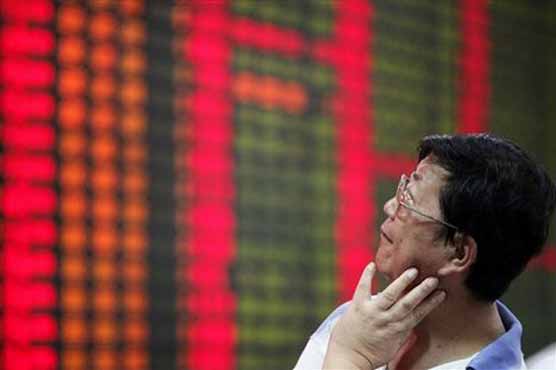Most Asian markets closed for Labour Day, Nikkei opens

Japan's Nikkei stock average opened down 0.2 percent.
TOKYO (Reuters) - The dollar was pressured on Wednesday ahead of the outcome of the U.S. Federal Reserve s two-day policy meeting later, while the euro drifted on expectations for a rate cut when the European Central Bank meets later in the week.
Investors were cautious ahead of some big monetary policy decisions due this week, and lacked incentives to trade actively with many Asian markets closed for the Labour Day holiday.
One highlight during the Asian session is the release of official Chinese Purchasing Managers Index (PMI) due at 0100 GMT, which is expected to hit a 12-month high.
MSCI s broadest index of Asia-Pacific shares outside Japan was nearly flat after climbing to a seven-week high on Tuesday.
The Australian benchmark share index was down 0.1 percent after reaching its highest in nearly five years in the previous session.
Japan s Nikkei stock average opened down 0.2 percent. The index posted its best April in 20 years, reflecting a sharp improvement in investor sentiment as the government promotes aggressive policies to end the country s stubborn deflation and bolster growth.
The dollar was down 0.2 percent against the yen at 97.26 yen and inched down 0.1 percent against a basket of six major currencies. The dollar index hit its lowest since the end of February at 81.598 on Tuesday.
"No one should be expecting either a change in the (Fed s) $85 billion monthly quantitative easing (QE) pace or a hint that the case for tapering QE has grown," Sean Callow, a senior currency strategist at Westpac in Sydney, said in a note to clients.
"Despite what should be low expectations for firm hints in the statement, USD may well be whippy after the release, with a bias to the weak side," he said, referring to the statement that accompanies the monetary decision.
The euro held steady around $1.3168 against the dollar but fell 0.2 percent against the yen at 128.02 yen.
"The euro is catching attention this week ahead of the ECB meeting and a key non-farm payroll release...instead, we think meaningful EUR moves will be driven by three fairly unrelated factors, none of which relates to monetary policy in the eurozone," Barclays Capital said in a research note.
The three factors are the effect of a weak yen on Germany s growth, impact from Italy s new coalition government s austerity policies, and a recovery in the U.S. economy.
European shares slipped on Tuesday but still ended the month in positive territory for the longest monthly winning streak since 1997. April was the 11th straight monthly gain for the broad STOXX Europe 600 index.
Inflation in the euro zone has fallen to a three-year low and unemployment has hit a new record, cementing expectations of a 25-basis-point interest rate cut by the ECB on Thursday.
In the U.S., the Standard & Poor s 500 Index settled at an all-time high on Tuesday, despite a mixed bag of economic reports. The Institute for Supply Management-Chicago business barometer unexpectedly contracted in April to its lowest level since September 2009 as a gauge of employment pulled back.
But other reports were more upbeat, including the S&P/Case-Shiller index of 20 metropolitan areas showing single-family home prices rose 9.3 percent in February from a year earlier at the fastest pace since May 2006, and a separate data showing consumer confidence rebounded in April.
These data precede the key U.S. non-farm payrolls report for April due on Friday. March s number came in well below expectations, at 88,000, triggering a sell-off in risk assets.


